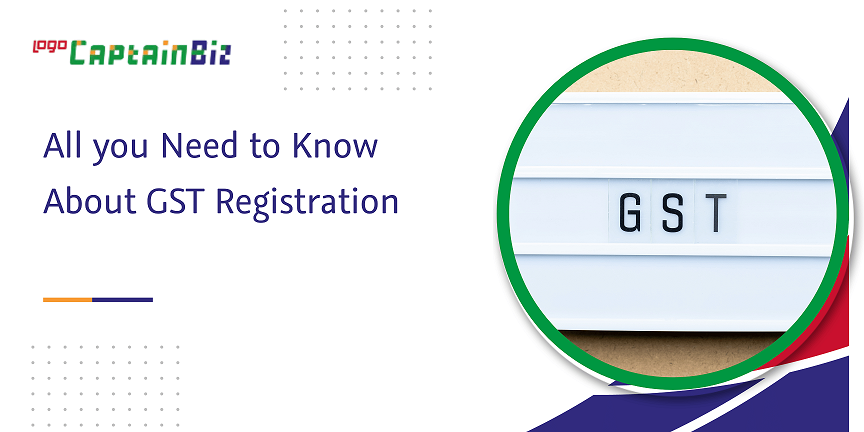Specialist Tips for Picking the very best GST Registration Services in Singapore
Specialist Tips for Picking the very best GST Registration Services in Singapore
Blog Article
Throughout: The Ultimate Roadmap to GST Enrollment for Services Looking For Financial Stability
Browsing the intricacies of Goods and Solutions Tax Obligation (GST) registration is a vital step for organizations striving for economic security. From recognizing the essential principles of GST to adhering to post-registration standards, the process can appear discouraging initially glance. Breaking down the roadmap right into workable actions can enhance the enrollment trip for businesses looking to enhance their monetary standing. Let's check out the essential elements that make up this supreme roadmap and find just how each stage adds to laying a strong foundation for monetary success.
Understanding GST Fundamentals
Exploring the basic concepts of Item and Services Tax Obligation (GST) is essential for acquiring a thorough understanding of its effects on businesses and the economic situation. GST is a value-added tax imposed on many products and services for residential usage. It has changed several indirect taxes that existed in the pre-GST period, enhancing the tax framework and improving ease of doing organization in India. Under the GST system, both items and services are exhausted at a specific rate, which is identified based on their classification. If their yearly turnover goes beyond the threshold limit set by the federal government, companies are required to sign up for GST. Input Tax Debt (ITC) is a considerable function of GST, allowing services to claim credit rating for tax obligations paid on inputs, minimizing the overall tax obligation problem. Comprehending the basics of GST is crucial for organizations to abide by tax policies, handle their financial resources efficiently, and add to the country's economic growth by getting involved in a transparent tax system.
Eligibility Requirements for Registration
To register for GST, companies should fulfill specific eligibility criteria developed by the federal government. The key eligibility requirement is that any kind of company associated with the supply of products or services with a yearly accumulation turn over above the threshold limit established by the authorities need to register for GST. As of the present regulations, the threshold limitation for GST registration is a yearly aggregate turn over of 40 lakhs for companies operating within a state, besides special group states where the limitation is 20 lakhs. Additionally, particular services are needed to register for GST regardless of their turnover, such as interstate providers, informal taxed persons, and businesses liable to pay tax obligation under the reverse charge mechanism. It is important for companies to thoroughly evaluate their turnover and transaction types to identify their GST enrollment responsibilities accurately. Failing to sign up for GST when eligible can cause read here penalties and lawful consequences, making Resources it essential for services to adhere to the defined eligibility standards.
Records Needed for Registration
Having satisfied the qualification standards for GST enrollment, services must now ensure they have the requisite papers in area to wage the enrollment process efficiently. The files required for GST registration commonly include proof of company constitution, such as collaboration action, registration certificate, or unification certification for various kinds of organizations. In addition, organizations need to provide files establishing the primary business, such as a rental agreement or electrical energy expense. Frying pan card of the business, as well as the identity and address proof of promoters/partners/directors, are crucial for verification objectives. Savings account statements, in addition to canceled cheques or a duplicate of the financial institution passbook, are needed to confirm the monetary details given throughout enrollment. Organizations need to have electronic trademarks all set for the licensed signatory. Guaranteeing all these documents are arranged and easily available will certainly accelerate the GST registration procedure, allowing companies to comply with tax obligation guidelines perfectly.
Step-by-Step Enrollment Process
Beginning the GST enrollment procedure involves a collection of structured steps to ensure a compliant and seamless registration for organizations. The very first action is to visit the GST portal and submit the registration form with accurate details of business entity. Following this, the candidate receives a Momentary Referral Number (TRN) which is used to resume the application process if it's not finished in one go.
Following, all called for documents according to the checklist given by the GST portal need to be posted. These papers typically consist of proof of organization registration, identity and address proofs of marketers, financial statements, and service entity's frying pan card.

Post-Registration Conformity Guidelines

Final Thought
Finally, services looking for monetary stability must understand the basics of GST, meet eligibility criteria, gather necessary records, adhere to the detailed enrollment procedure, and abide by post-registration guidelines - Best GST registration services in Singapore. By sticking to these steps, companies can ensure conformity with tax laws and keep monetary security over time
Furthermore, certain organizations are called for to register for GST irrespective of their turnover, such as interstate suppliers, informal taxable persons, and organizations accountable to pay tax under the reverse fee mechanism.Having actually satisfied the eligibility criteria for GST enrollment, organizations need to currently ensure they have the requisite files in location to proceed with the enrollment procedure successfully. The papers required for GST registration normally consist of proof of company constitution, such as collaboration action, registration certificate, or consolidation certification for various kinds of organizations. In addition, companies need to offer papers developing the principal area of company, such as a rental arrangement or electrical energy costs.Commencing the GST enrollment procedure involves a series of organized actions to ensure a certified and seamless registration for services.
Report this page